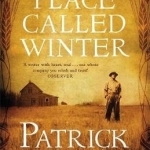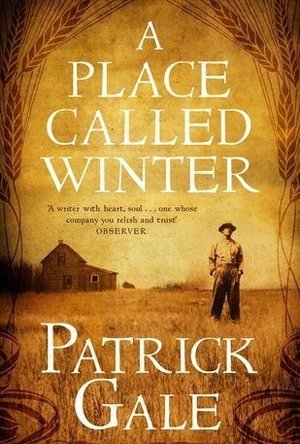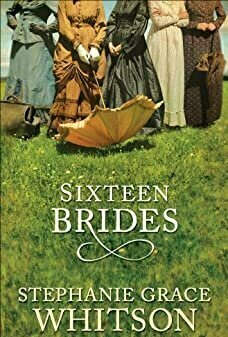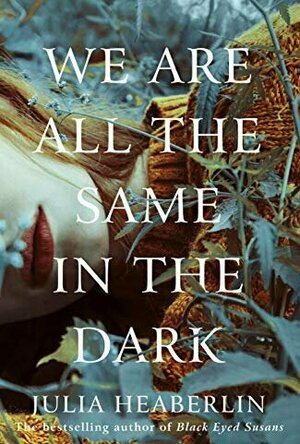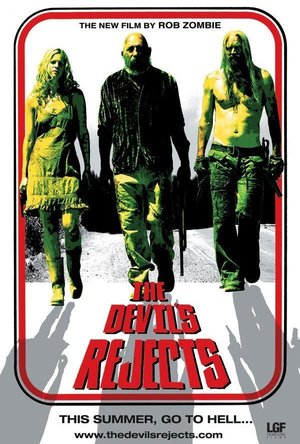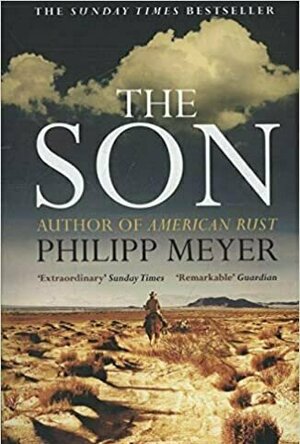
The Son
Book
The critically acclaimed, New York Times-bestselling epic, a saga of land, blood and power, follows...
JT (287 KP) rated Risky Business (1983) in Movies
Mar 10, 2020
A film that may have proved the inspiration for Ferris Bueller’s Day Off is one of Cruise’s most famous roles, and it has all the hall marks of a classic 80s comedy with an influx of drama that proved the catalyst for a great film.
Joel Goodsen (Cruise) is just your average American teen, when his parents go out of town for a few days he and fellow buddies look to have a little fun, in part by turning the homestead into a working brothel.
Of course there is a method behind the madness with Cruise hooking up with call girl Lana (De Mornay), they both have their problems and agree on a mutual business deal which also involves engaging in sex every now and again.
If you ever wonder what to do on the subway one night Cruise and De Mornay lead the lesson. That scene in itself is draped in 80s clichés, soft rock music and a strobe lighting effect from the train, it delivers on the steam factor.
The subject matter throughout is strong and covered across all angles. A highly sexed teenage boy, drug use, what not to do to your father’s Porche and being hunted down by a killer pimp, its all in there.
Cruise’s acting display is not the best, but he has the early raw talent to get him through, and of course as we know, the rest is history. What is always similar about teenage kids of this era getting into trouble is that they always seem to get away with it in the end, Ferris Bueller a prime example.
To think that anyone in this day and age would be as lucky is highly unlikely, and that goes for sliding around in tight white under garments.
Hazel (1853 KP) rated A Place Called Winter in Books
May 28, 2017
Loosely based upon a true story, one of Patrick Gale’s ancestors in fact, A Place Called Winter follows the life of Harry Cane during the early 1900s. The book begins with Harry being transferred from a mental asylum to a therapeutic community called Bethel Ranch. The story then backtracks to Harry’s life as a young, nervous, motherless boy and the time he met his future wife, Winnie.
Throughout the book the reader is trying to guess the reason Harry eventually finds himself at Bethel Ranch. Gale describes Harry’s marriage, his discovery of homosexuality and his move to Canada to his final stop at a homestead in a place called Winter. Does Harry develop a mental illness or is it something to do with his scandalous desires? Or, does something else happen later in the book?
After moving to Canada, Harry does not exactly have it easy and the reader feels for him as he perseveres with his new life style. We watch him grow from a timid young man into someone with his own farm and independence. It makes it all the more upsetting to read when certain things take a turn for the worse.
In this historical novel, Patrick Gale emphasizes on the way homosexuality was regarded in society. Entire families cut people out of their lives at the slightest hint of a scandal. Gale also touches on the techniques used within mental asylums during this period as well as racial discrimination.
Occasionally, the story was difficult to read as it alternated between being really interesting and then slightly dull. Overall, regardless of how much was based on actual events, it was a good storyline, and once you have started reading you feel the need to continue to find out what happens to Harry. I have only read one other book by Patrick Gale – Notes From an Exhibition – that I struggled with a little. A Place Called Winter, however, was a lot better than I was expecting.
Hazel (1853 KP) rated A Place Called Winter in Books
Dec 17, 2018
Loosely based upon a true story, one of Patrick Gale’s ancestors in fact, <i>A Place Called Winter</i> follows the life of Harry Cane during the early 1900s. The book begins with Harry being transferred from a mental asylum to a therapeutic community called Bethel Ranch. The story then backtracks to Harry’s life as a young, nervous, motherless boy and the time he met his future wife, Winnie.
Throughout the book the reader is trying to guess the reason Harry eventually finds himself at Bethel Ranch. Gale describes Harry’s marriage, his discovery of homosexuality and his move to Canada to his final stop at a homestead in a place called Winter. Does Harry develop a mental illness or is it something to do with his scandalous desires? Or, does something else happen later in the book?
After moving to Canada, Harry does not exactly have it easy and the reader feels for him as he perseveres with his new life style. We watch him grow from a timid young man into someone with his own farm and independence. It makes it all the more upsetting to read when certain things take a turn for the worse.
In this historical novel, Patrick Gale emphasizes on the way homosexuality was regarded in society. Entire families cut people out of their lives at the slightest hint of a scandal. Gale also touches on the techniques used within mental asylums during this period as well as racial discrimination.
Occasionally, the story was difficult to read as it alternated between being really interesting and then slightly dull. Overall, regardless of how much was based on actual events, it was a good storyline, and once you have started reading you feel the need to continue to find out what happens to Harry. I have only read one other book by Patrick Gale –<i> Notes From an Exhibition</i> – that I struggled with a little. <i>A Place Called Winter, however, was a lot better than I was expecting. </i>

An Amish Christmas Love: Four Novellas
Beth Wiseman, Amy Clipston, Ruth Reid and Kelly Irvin
Book
Winter Kisses by Beth Wiseman Three generations of Stoltzfus women are all living under the same...
Rachel King (13 KP) rated Sixteen Brides in Books
Feb 11, 2019
Luckily, that number was cut by more than half when the train stops in Plum Grove, Nebraska, leaving behind the important characters and sending the expendible ones away - how convenient. This is where I feel that the plot actually begins, as the women carve out lives for themselves, even as they experience character growth and rejuvenation. The men are also introduced at this point, and I found them to be more imaginative and unique than the females in the book. The dynamics between Michael Ransom and Lucas Gray, cousins, are very interesting, as Whitson only reveals a bit at a time about their relationship with each other. I wished that more had been written about Jeb Cooper, as the paradox that he lives daily was very entertaining to read.
The background information and historical details were interesting, as I knew little before reading this book about frontier towns and the founding and running of a homestead. I find it ironic that although all of the women are strongly opposed to being hitched to a man again, given that they all claim to be widows, romance seems to be necessary to each of their character developments. The romance was the most predictable aspect of the novel, with almost every woman gravitating noticeably to a man.
The idea that war widows were shipped out to the frontier as prospective brides made for excellent novel potential, but I felt the idea fell a bit short, as the man responsible in the book for these sixteen women was not followed in point-of-view passed his departure from Plum Grove. Neither was much said about the other women that went on to Cayote with him. I would have liked to be a fly on the wall at those women's proposals from strangers and hear their rationale behind making such a choice to be delivered and bid on like so many heads of cattle.
Kristy H (1252 KP) rated We Are All the Same in the Dark in Books
Sep 24, 2020
"She has a bad, bad mystery to her. I can feel it deep in the hollow of my spook bone, the one my dad broke when I was a kid. My arm is never wrong."
This is an amazing, absorbing thriller that draws you in from the first page. Heaberlin writes so beautifully and lyrically--all these dark and horrific moments unfold in such beautiful prose. Her words astound me.
"There's no chatter about why I'm alone, scared, speeding on a prairie road with trees scattered like sailboats, thinking how my daddy, the town's late great top cop, told me to never come back to this little Texas hellhole unless it was to bury his ashes. Don't try to find the truth about Trumanell. Some answers are left to the by and by."
The characters here are beautiful--flawed, damaged, tender, and painted with a depth that will astound you. Troubled Odette, lost Wyatt, and Angel, the girl found in the field. They form a trio that one is unlikely to forget for quite some time.
This is a dark read--atmospheric and sad, and not always easy to read. Bad things happen in this town. Heaberlin's twists are true stunners. It's rare when a thriller takes me by surprise, but wow, I found myself shocked several times, and even better, unaware of the true culprit. How nice to read a mystery without guessing the ultimate ending.
Overall, this is a superb tale of a town held captive by its own secrets and tragedy. The characters come to life before your eyes through Heaberlin's elegant writing. It's shocking and twisted and one that shouldn't be missed. 4.5 stars.

Tiny Farm: Animal & Tractor App for Kids
Book and Games
App
You in the farmyard: animals, tractors and lots of adventures. Explore life in the country in our...

Fantasy Ranch
Tabletop Game
Welcome to Fantasy Ranch! Kick off your boots and pull up a chair for a game where all your dreams...
Andy K (10823 KP) rated The Devil's Rejects (2005) in Movies
Oct 16, 2019
The two siblings arrive at a local motel only to perform their brand of debauchery on two couples and friends staying there. They are forced to be in constant fear for their lives whilst their kidnappers decide what to do with them while waiting on their matriarch. The torture endured by their victims is heinous, cruel and unnecessary, but is their way of life.
The law is tightly on their trail waiting for that lead which will lead them to the felons. This is growing personal for the sheriff as he discovers the "rejects" were responsible for the death of his brother. The sheriff decides to hire some disreputable men of his own to use whatever methods they can to acquire the location of his targets.
The inevitable stand off leaves other casualties and a position it will be difficult for the sheriff to return from. The "rejects" always seem to find a way to survive no matter their degree of peril.
This film takes a different direction than that of House of 1,000 Corpses. That film being more of a standard "teenagers wander into a house of horrors" situation, whereas this film feels more like a "Natural Born Killers" type.
The total lack of any sort of normal human decency for the family is truly revolting and is on display every time they interact with anyone including women and children. They even don't really like each other very much and are constantly arguing with one other; their visceral hatred always right on the edge of bubbling over.
The unspeakable cruelty they enact on their victims can seem excessive at times; however, if you have lived through the events of the first film, you know what you are getting into here. When they are attached to their motel guests, you are just waiting for the next moment of panic when their guests start to figure out exactly what type of monsters they are dealing with.
I loved the gritty look of the film along with the mostly 1970s classic rock soundtrack. The scenery and landscapes of the sparse countryside fit the film well as well.
Not too many sequels build or are as good or better than their predecessor, but this film could be one of those for sure.

